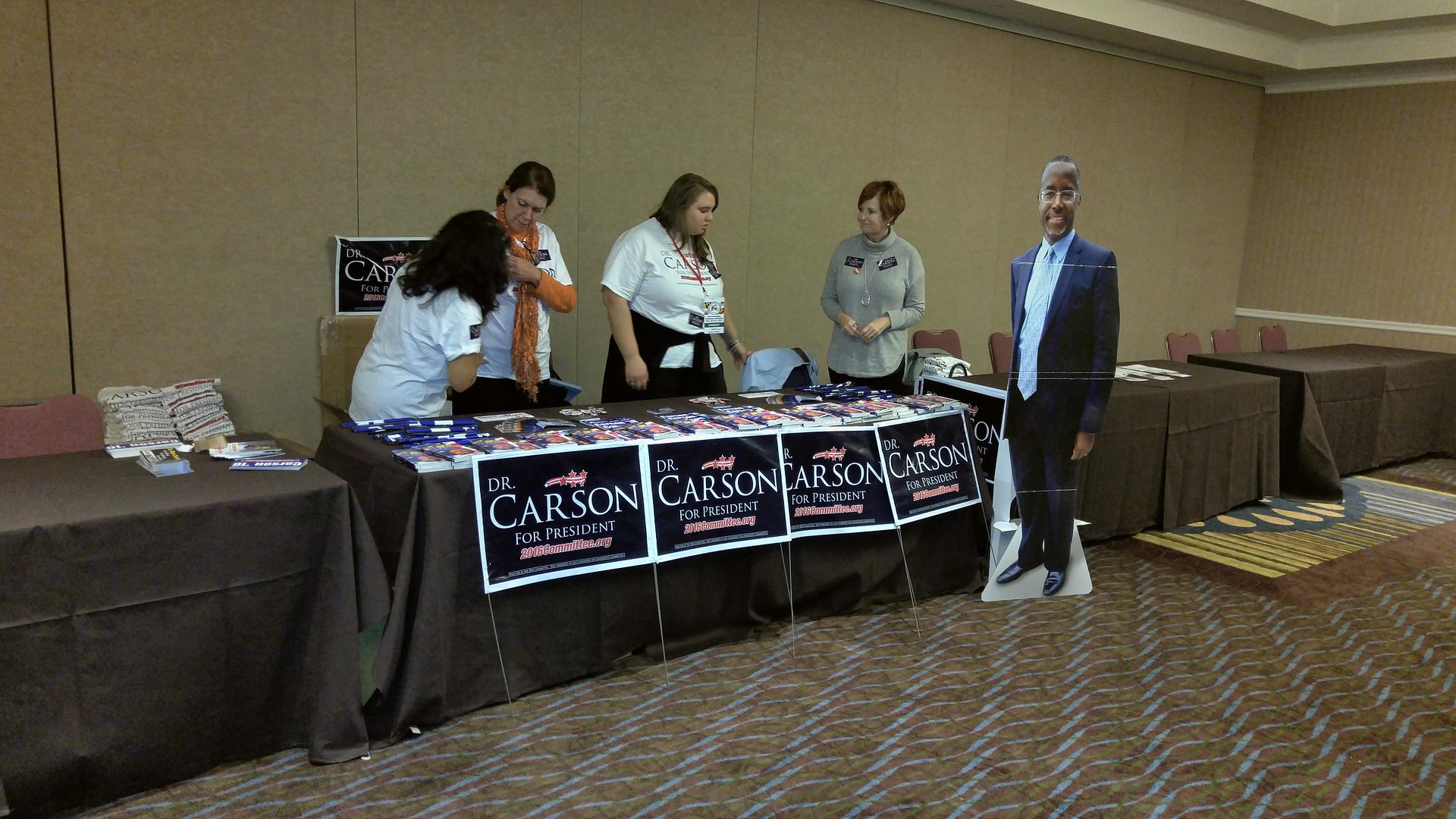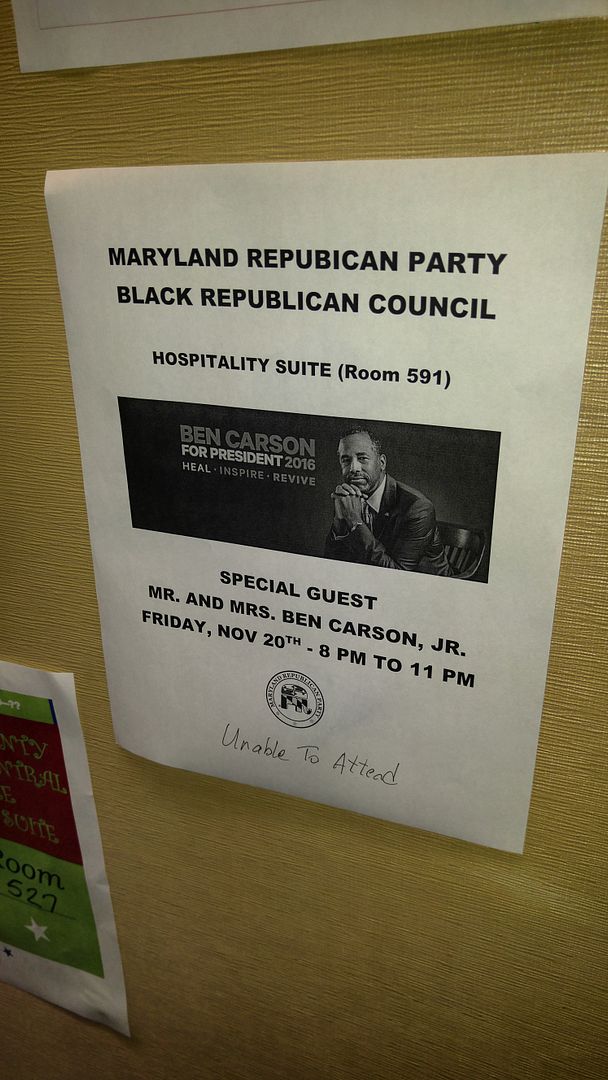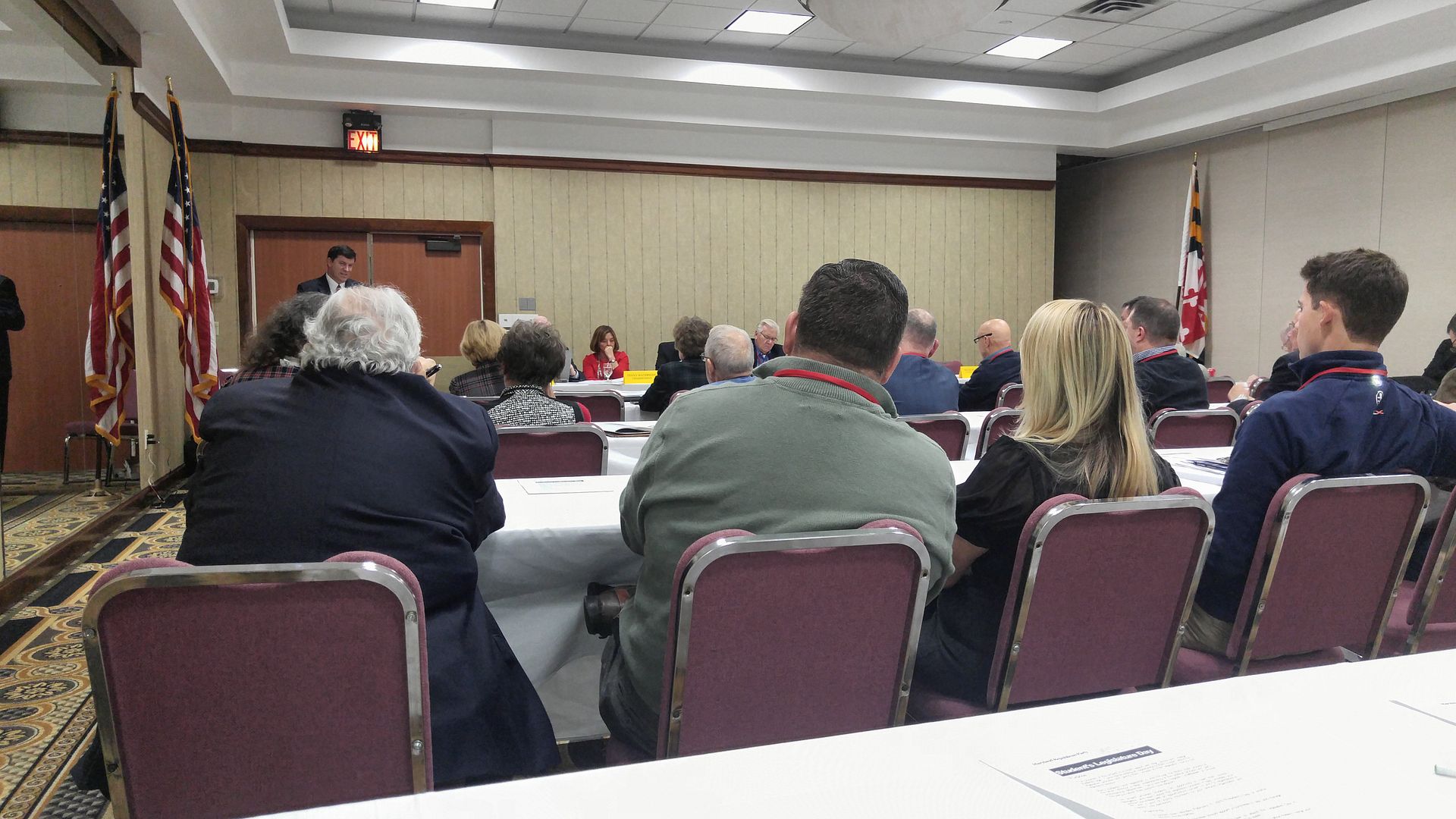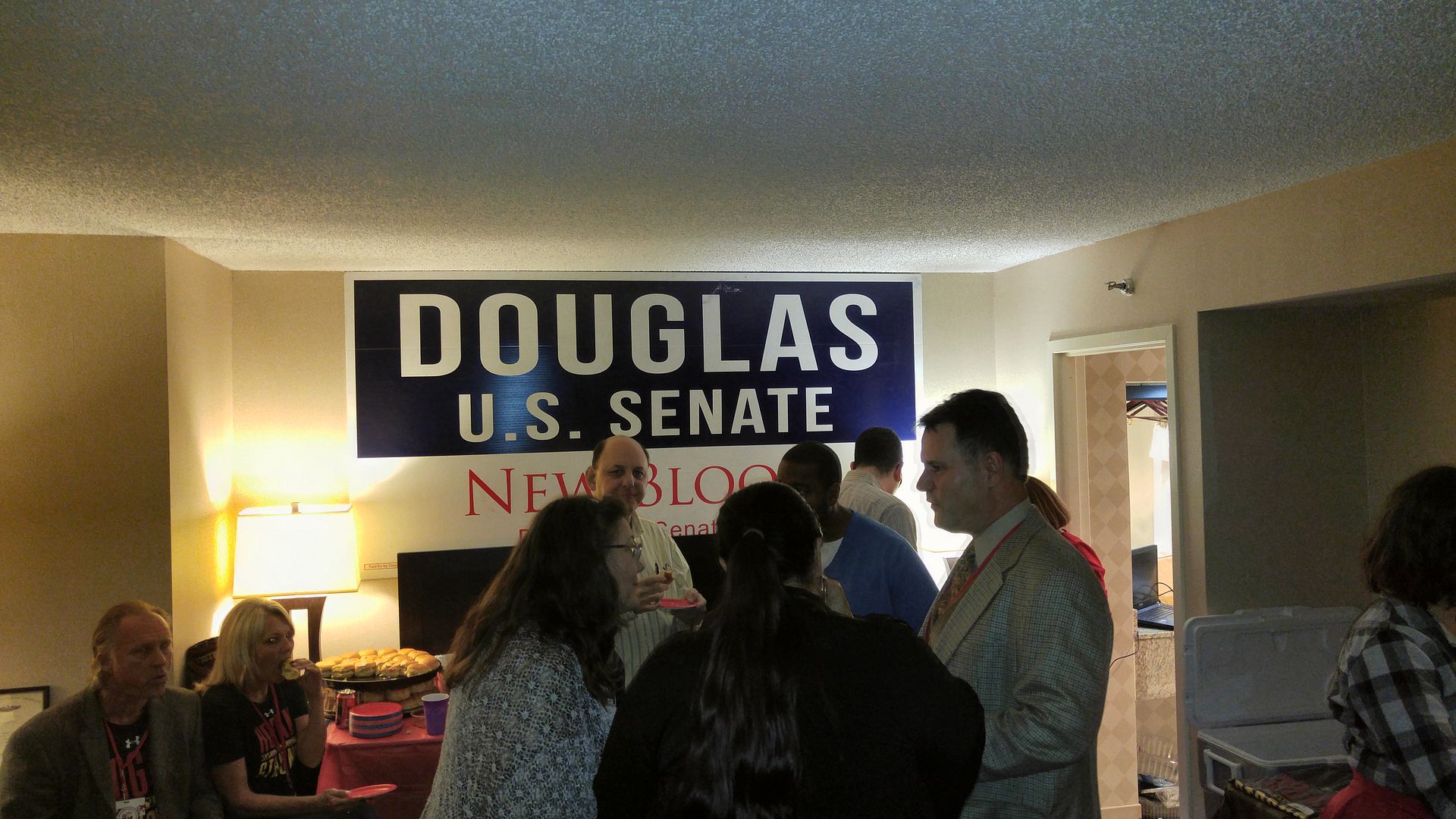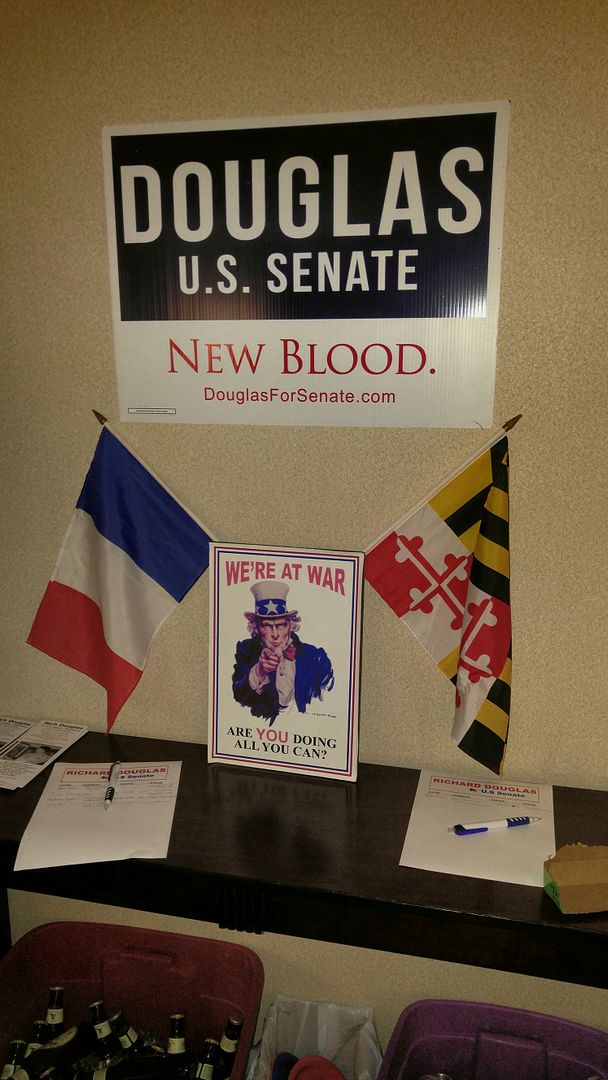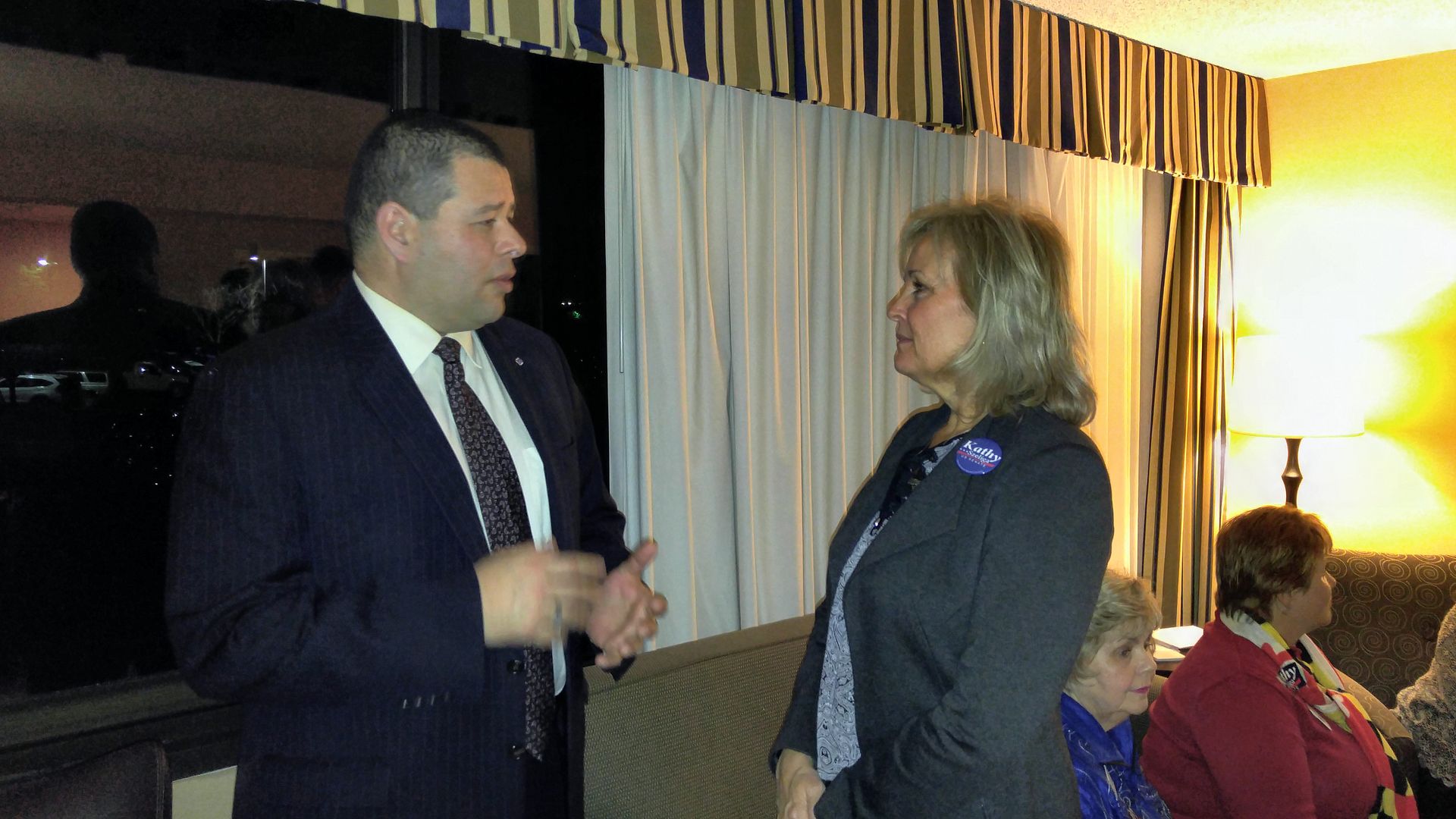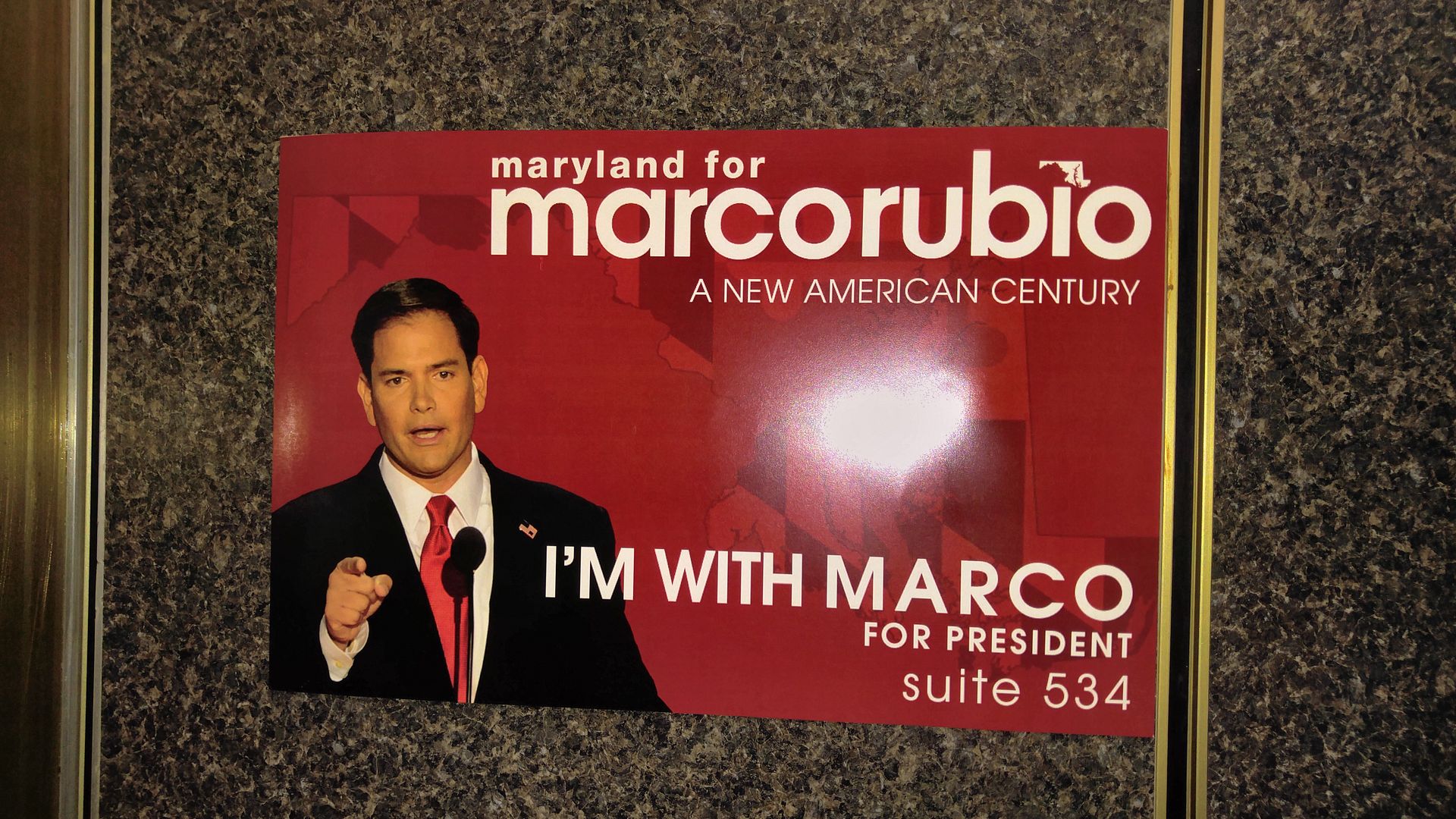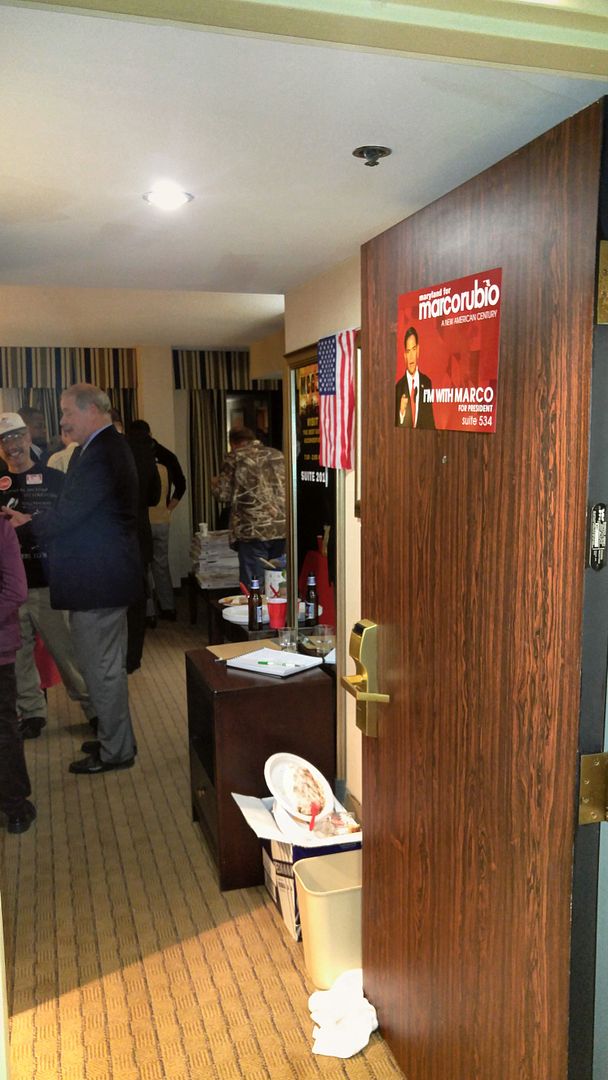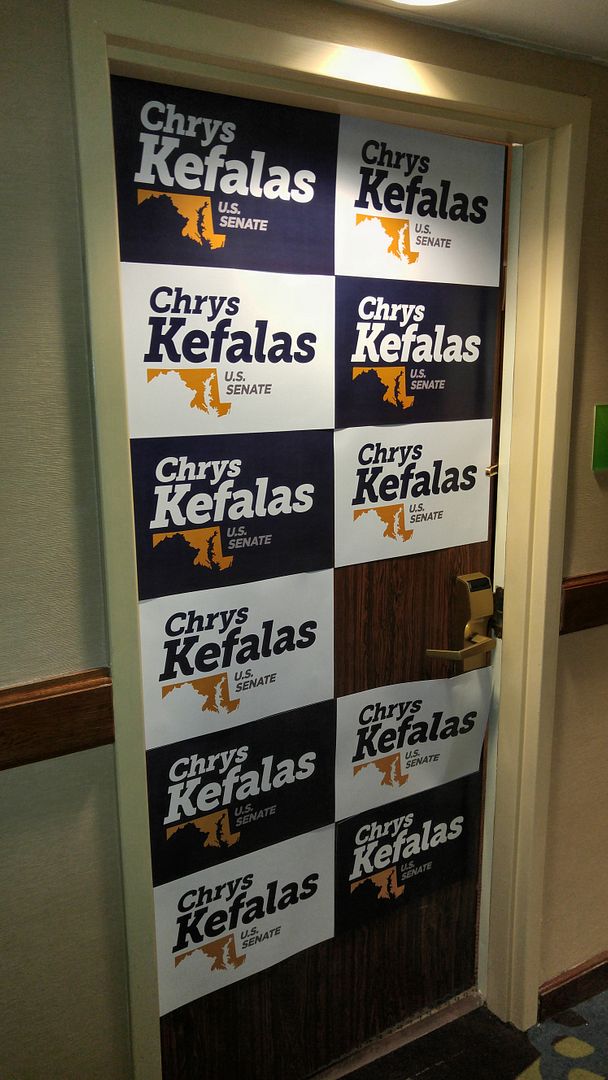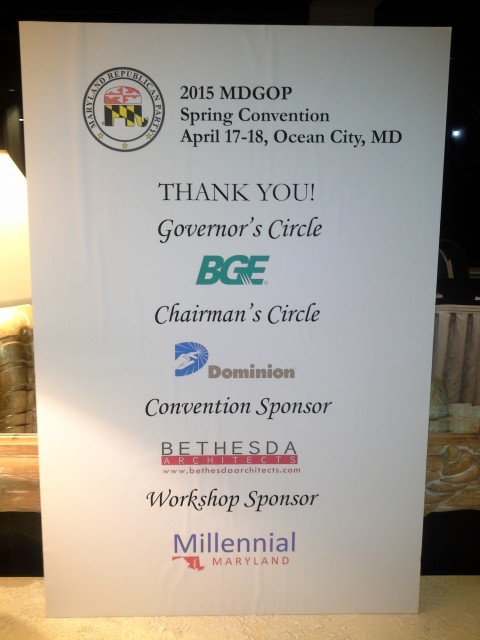Since the first round did so well and there’s more to write about anyway I think I’ll revise and extend my earlier remarks. I suppose I will begin with the front-runner according to the Washington Post poll from earlier this week.
So we know now that Kathy Szeliga has indeed debuted her television spot, at least online. (I haven’t seen it on broadcast yet.) More on that in a moment, but if you weren’t already sure she was the “establishment” candidate, the fact the Maryland GOP’s executive director made a “small donation” to the tune of $250 to her campaign might just change your mind. (For someone like me, that’s not “small.”)
Now about that commercial, which continues Kathy’s narrative that she would bring change to Washington. It’s basically an introduction piece that I think will have one lasting impact: “oh yeah, she’s the candidate that rides the motorcycle.” To each his or her own, I guess. Since this race is still a lot about name recognition, every little bit helps.
I do want to bring one other voice into the discussion on Szeliga, although it can extend to other candidates as well. Richard Falknor at Blue Ridge Forum (who was kind enough to link the last Senate piece) states:
Maryland Republicans should insist on clear answers from whoever is their standard bearer for United States Senator. The optimistic tone of delegate Szeliga’s campaign message is praiseworthy, but she must support it by articulating thoughtful positions on vital matters. Many Maryland voters of all flavors will respect blunt answers in these times of grave peril to our land.
Unfortunately, as I pointed out in my original treatise, Szeliga is one of two top candidates who don’t have an “issues” page on their website. (Chrys Kefalas, who is second at the moment, is the other.) A quick check of their websites reveals both Donna Edwards and Chris Van Hollen have relatively extensive issues pages, so one could ask what our frontrunners are hiding. I suppose they remember that it more or less worked for Larry Hogan, who frustrated me by having a skimpy issues page as well. Perhaps many of us now know why.
So it’s interesting that Chrys Kefalas is now trying to corner the market on the tagline “Larry Hogan Republican,” as he plays up his experience in Maryland’s previous GOP administration. Of course, the perspective is somewhat different as Larry is an executive while Chrys would be a legislator, but you can’t argue with a 70% approval rating, can you? It seems the top two candidates are trying to out-Hogan the other as far as invoking the name (and perhaps political philosophy.)
It’s been more quiet on the Richard Douglas front, although he is chiming in on several Obama administration foreign policy decisions. His latest is his “hunch” that a lame-duck Barack Obama will pardon American criminals hiding out in Cuba. But if I can clear my docket I may see Richard tomorrow morning at the Somerset County GOP breakfast – he sent an e-mail to me today inviting me to come. It will be interesting to see how much of his presentation (if he makes one) will be devoted to foreign policy and how much goes to pocketbook issues.
Recently I completed the Facebook five-pack as I “liked” Joe Hooe‘s campaign page there. Not much new under the sun there, but it did pique my curiosity. I don’t think Hooe’s page has been around very long, but it got me thinking about social media. All five top contenders have a Senate campaign page – so how many followers do they have? Here you go:
- Kathy Szeliga – 7,126
- Chrys Kefalas – 5,553
- Dave Wallace – 2,895
- Richard Douglas – 2,039
- Joe Hooe – 439
Granted, Dave Wallace could have carried his page over from his 2014 campaign and renamed it, but still that’s very good for a guy who’s not even polled. It’s a very tenuous connection based on this possibility, but if you assume from Szeliga’s number of Facebook followers that one polling point is equal to 475 followers (a formula which works fairly close for Kefalas as well) then Wallace should be at about 6 or 7 percent. I have noticed he engages his Facebook followers more than most, and I’ve been setting some of the doubters straight on energy issues there. He’s not hurt his position regarding the horserace as little has changed for me over the week; however, I’m hoping I make it down to Princess Anne in time to speak with Douglas tomorrow.
So that’s where I stand for now as I work on making a final endorsement on April 17.


